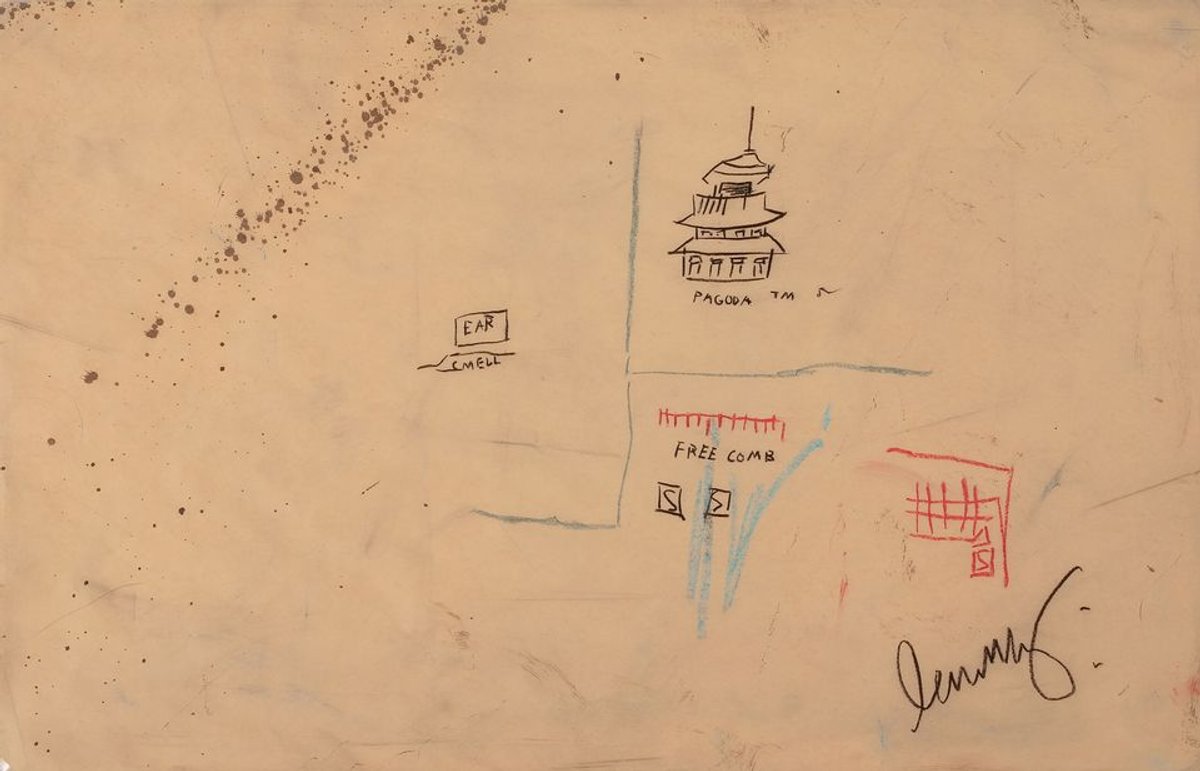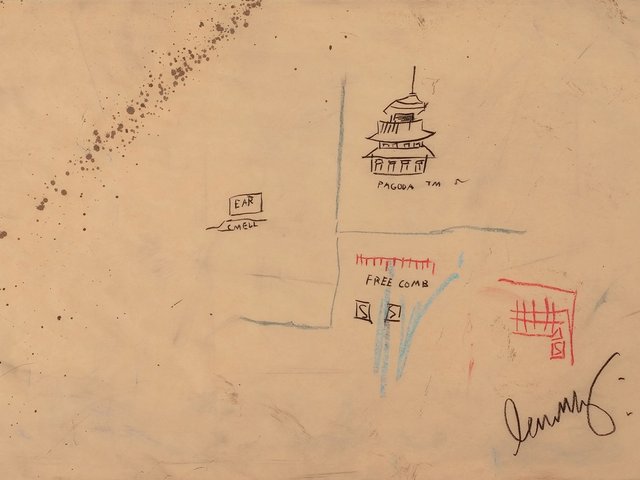An NFT of a drawing by Jean-Michel Basquiat has been withdrawn from sale on OpenSea after the late artist’s estate confirmed the seller does not own the licence or rights to the work.
David Stark, the licensing agent who deals with Basquiat’s archive, tells The Art Newspaper: “The estate of Jean-Michel Basquiat owns the copyright in the artwork referenced. No license or rights were conveyed to the seller and the NFT has subsequently been removed from sale.”
The auction of the NFT of the 1986 mixed media work on paper, Free Comb with Pagoda, was sponsored by the little-known firm Daystrom, which had claimed the transaction would “memorialise ownership” as well as “reproduction and IP rights that will be sold to the highest bidder in perpetuity”.
The winning bidder was also given the option to destroy the physical drawing—which raised issues about the artist’s moral rights.
The estate did not specifically address whether it believes the drawing to be genuine or fake, though Daystrom says Free Comb with Pagoda was authenticated by Basquiat’s estate in 2002 and the current owner has “proof of purchase and payment to substantiate exclusive ownership”. Daystrom adds: “The original is framed with the authentication on the reverse and is signed 'Lenny' in the lower right corner—a common Basquiat pen-name. There is absolutely zero doubt about authenticity and ownership of the work.”
The drawing had previously been offered at Heritage Auctions in Texas in 2012 for $80,000-$120,000, but failed to sell. It was sold privately by a gallery in Philadelphia, Pennsylvania for an undisclosed sum in 2015.
When pressed on the copyright issue, Daystrom clarified: “While blockchain transactions are widely considered a trusted source of authentication and provenance, best copyright practices have yet to evolve for the digital economy.”
Winning bidders on the firm’s auctions receive a “certificate of copyright” as a way “to preserve, protect and convey whatever ‘related copyright’ now—or may in the future—exist”. According to Daystrom, such certificates provide NFT buyers “with the same copyright as other similarly situated buyers are entitled to receive in future transactions, to the extent such rights may exist”.
The firm also said it had discovered the sale of “unlicensed, illicit reproductions” of Basquiat’s work on retail platforms such as Amazon. “These inexpensive, poorly reproduced versions of Basquiat’s work are sourced in the People’s Republic of China and made available in the US without right, title, interest or copyright from any legitimate source,” Daystrom says.
“We believe the regulation and laws governing NFTs are rapidly evolving in terms of conveyance, secured interests, intellectual property and copyright—and are trying to make sure our buyers receive as much protection as may now, or ever, become available for them,” the firm adds.



